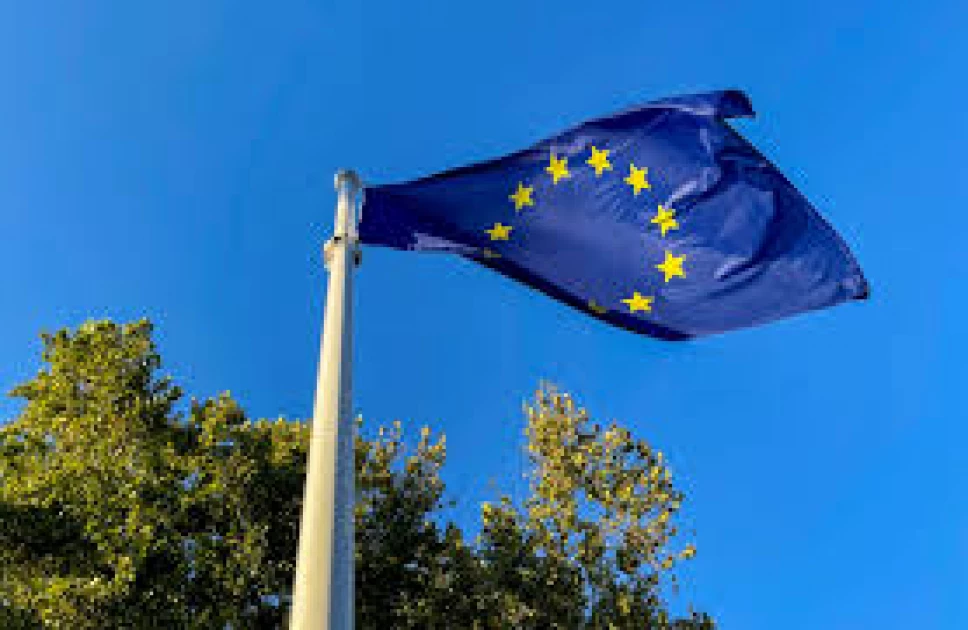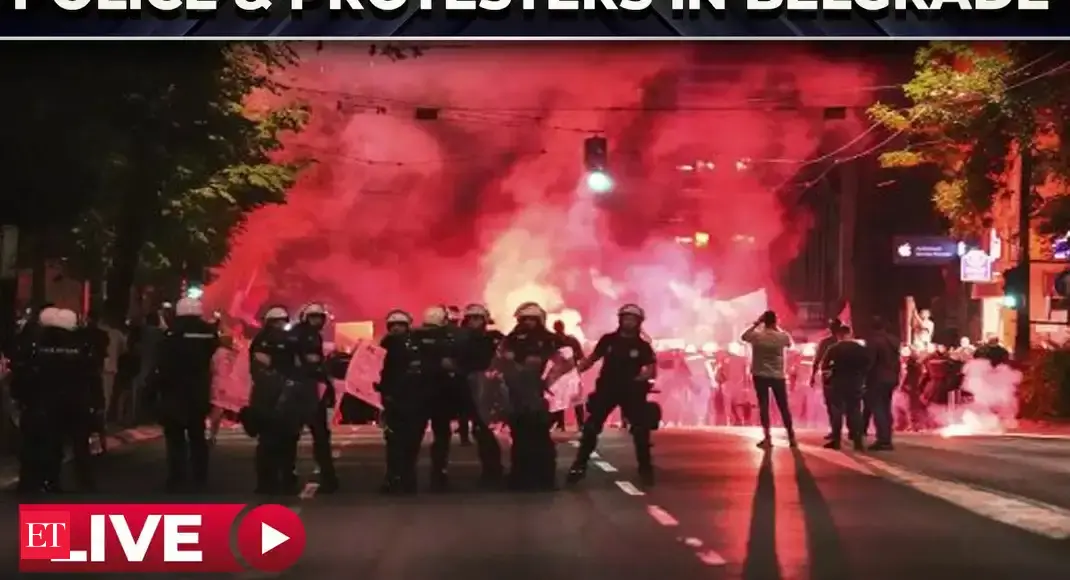Anti-Government Protests and Police Clashes in Serbia

Tens of thousands of anti-government protesters clashed with Serbian riot police in Belgrade on Saturday, June 28, 2025, demanding snap elections and an end to President Aleksandar Vucic's 12-year rule. This major rally followed months of persistent demonstrations, primarily led by university students, which have significantly challenged Mr. Vucic's hold on power. The crowd, filling the capital's central Slavija Square and surrounding streets, chanted "We want elections!" A student, speaking at the protest, declared, "Elections are a clear way out of the social crisis caused by the deeds of the government, which is undoubtedly against the interests of their own people. Today, on June 28 2025, we declare the current authorities illegitimate."
Tensions were palpable throughout the day, with riot police deployed around government buildings, parliament, and Pionirski Park, where hundreds of Vucic loyalists had been camping for months. As the protest concluded in the evening, confrontations escalated, with some demonstrators throwing bottles, rocks, and flares at police lines preventing access to Pionirski Park. Skirmishes between riot officers and groups of protesters lasted for several hours across Belgrade's city center. Police responded by firing tear gas to disperse crowds and deployed armored vehicles, using shields and batons to push back the violent throng. Dragan Vasiljevic, the director of police, reported late on Saturday that several dozen protesters were detained, and six officers were injured in the clashes. He asserted that officers had "acted very professionally" and used only "minimal force."
President Vucic, responding to the violence, posted on Instagram, "Serbia always wins in the end." He had earlier warned against riots and reiterated his government’s claim that the protests were instigated by "foreign powers," though he did not specify details. The unrest was initially sparked by the collapse of a renovated rail station canopy in Novi Sad last November, which killed 16 people. Many blamed this tragedy on government corruption and negligence in state infrastructure projects, fueling widespread outrage and recurring protests across the nation.
Despite formally expressing a desire for Serbia to join the European Union, critics argue that Vucic, a former extreme nationalist, has become increasingly authoritarian since coming to power over a decade ago, stifling democratic freedoms and strengthening ties with Russia and China. His right-wing Serbian Progressive Party has consistently rejected demands for early parliamentary elections, which are currently scheduled for 2027. While the scale of demonstrations had somewhat decreased in recent weeks, the significant turnout at Saturday's rally, estimated by an independent monitoring group at around 140,000 people (compared to the police's figure of 36,000 at the start), indicated persistent resolve among protesters after nearly eight months of almost daily actions.





